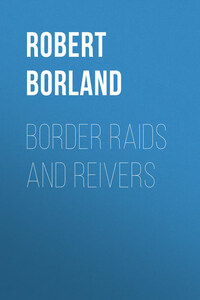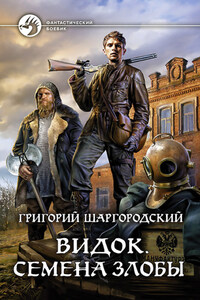The object we have had in view in the following pages has been (1) to indicate briefly the causes which produced Border reiving; (2) to show the extent to which the system was ultimately developed; (3) to describe the means adopted by both Governments for its suppression; (4) to illustrate the way in which the rugging and riving– to use a well-known phrase – was carried on; (5) to explain how these abnormal conditions were in the end effectually removed; and (6) to set forth in brief outline some of the more prominent traits in the lives and characters of the men who were most closely identified with this extraordinary phase of Border life.
We have to acknowledge our indebtedness for much of the information conveyed in the following pages to Scott’s “Border Antiquities” and “Border Minstrelsy,” Nicolson’s “Leges Marchiarum,” Pitcairn’s “Criminal Trials,” “Calendar of Border Papers” (recently published), “Cary’s Memoirs” – Froissart, Godscroft, Pitscottie, Pinkerton – and host of other writers on Border themes.
It is in no spirit of mock-modesty we acknowledge how inadequately the object we have had in view has been realised. The subject is so large and many-sided that we have found it difficult to compress within the compass of a single volume anything like an adequate outline of a theme which is at once so varied and interesting.
In coming to the consideration of this subject, there is one fact which it is well the reader should carefully bear in mind, and that is, that from the peculiar circumstances in which Borderers were placed in early times, the only alternative they had was either to starve or steal. The recognition of this fact will at least awaken our sympathy, if it does not always command our approval, when we come to consider the lives and characters of the Border Reivers.
“Near a Border frontier, in the time of war,
There’s ne’er a man, but he’s a freebooter.” – Satchells.
There are few more remarkable phenomena in the political or social life of Scotland than what is familiarly known as “Border Reiving.” In olden times it prevailed along the whole line of the Borders from Berwick to the Solway, embracing the counties of Berwick, Roxburgh, Selkirk, Peebles, and Dumfries. During a period of some three or four hundred years these districts were chiefly inhabited by hordes of moss-troopers, who made it the chief business of their lives to harry and despoil their English neighbours. On every convenient opportunity the Scottish reivers crossed the Border, and carried off whatever came readiest to hand – horses, cows, sheep, “insight and outsight,” nothing coming amiss to them unless it was either too heavy or too hot. Those on the English side who were thus despoiled were not slow to retaliate, and generally succeeded, to some extent, in making good the losses they sustained. This system of plunder and reprisal ultimately attained an extraordinary development. All classes, from the Chief of the clan to the meanest serf over whom he ruled, were engaged in it. Indeed it must be frankly admitted that the most notorious thieves were often those who had least excuse for indulging in such nefarious practices – gentlemen in high position like the Scotts, Kers, Johnstones, and Maxwells, and who in many cases had been chosen by the Government to repress the reiving propensities of their clans and followers.
Some who have made a superficial acquaintance with this remarkable phase of Border life have rushed to the conclusion that the great Border Chiefs, and those over whom they exercised a kind of patriarchal authority, must have been dowered with a “double dose of original sin.” In proof of this it is pointed out that a widely different state of affairs prevailed in other parts of the country, for example in Fife, and the Lothians, and generally speaking, throughout the whole of the west of Scotland, and consequently the only way in which they can account for the singular condition of the Borders is by predicating an essentially lower moral type. We do not believe that this theory, plausible though it may appear, will bear a moment’s serious consideration. No doubt among the “broken men” of the Debateable land, and in some parts of Liddesdale, you will find a considerable number of disreputable characters whose only law was the length of their own swords. But it is a mistake to suppose that such individuals represent the general type of the inhabitants of the Borderland. The very fact that these men had no Chief to represent them shows that they had, so to speak, fallen out of the ranks.
The solution of this problem must be sought in another direction. It will be found by a careful study of the history of the country that Border reiving was, to a considerable extent, the result of a concatenation of circumstances over which the inhabitants of these districts had little or no control. They were the victims of an evil fate. It was not merely their proximity to the English Border which occasioned their misdeeds. It is an interesting and significant fact that, till near the close of the 13th century, the Border Counties were as law-abiding as any other part of the realm. Petty skirmishes were, no doubt, of frequent occurrence, as might be expected; but the deep rooted aversion to the English which characterises the subsequent period of Scottish history had hardly at that time any real existence. How the change was brought about will become apparent as we bring under review some salient facts in Scottish history which have a direct and immediate bearing on the question before us.








